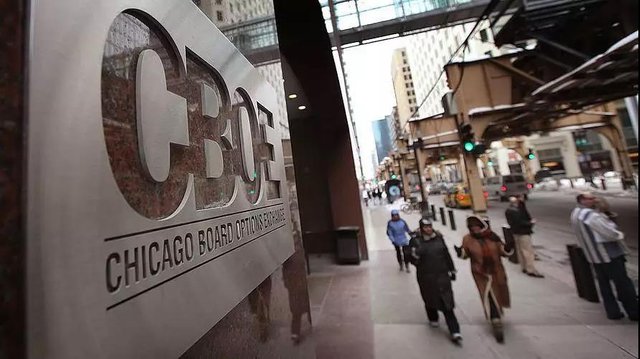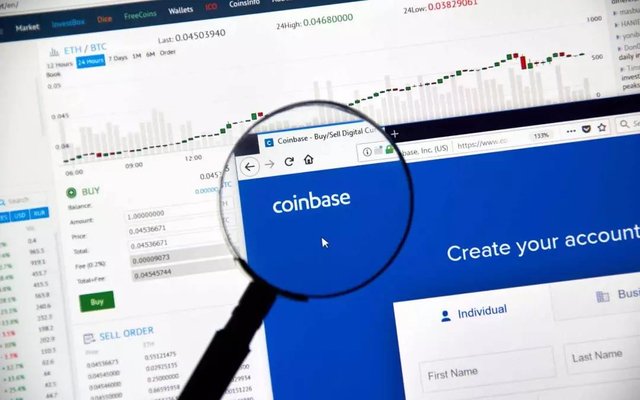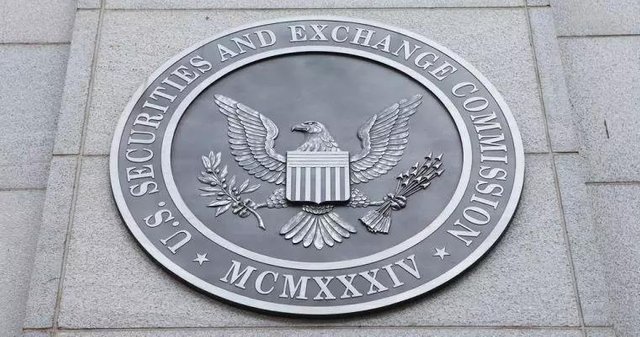Federal Reserve pinned the blame on SEC, mainstream funding approach cryptocurrency has been sounded
Governments ' attitude to crypto-currencies has recently been a bit harsh.
The Russian state duma is scheduled to pass a bill in September on cryptographic assets and the proposed legislation, which follows a new law in march that explicitly states that crypto-currency and scrip are illegal in the Russian Federation.
The Philippine special economic zone will issue its own crypto-currency at the end of this month, while the country's tax agency is pushing for an overhaul of the crypto-currency income verification process, and while the market remains tame, the recent release of regulatory easing by governments has certainly provided a boost to investors.
But the bigger picture was the day before the house financial services committee's crypto-currency hearings, with top officials including the chairman of the Federal Reserve, the former CFTC chairman and the chairman of the house agriculture committee, who published their views on key issues such as the crypto-currency and regulatory framework, but the outcome of the meeting appeared to be disappointing, BTC falling below $ 7300 during the meeting.
Federal Reserve chairman Colin Powell says cryptocurrencies pose a significant risk to investors, and that digital currencies are not real currencies because they have no intrinsic value.
At the same time, he has skilfully pinned the blame on crypto-currency regulation. " crypto-currencies should be regulated, but not regulated by the Federal Reserve. "
The SEC said it was " very stressful "
Now that the SEC has been mentioned, two things have to be said recently, and this is seen as a sign that mainstream investment funds are running, and that it is the trigger for the second half of the year.
The first is an application for BTC ETF, and the Chicago board options exchange ( CBOE ) has filed the SEC's application to the SEC and will publish its results on August 10!
The second is that Coinbase is expected to complete a series of acquisitions with the SEC, which will allow Coinbase to be allowed to go live with a digital currency ( token ) that is considered a security.
The notion that the size of the crypto-money market and the uncertainties of the regulatory environment is not enough to attract big money is far more symbolic than substantive, but nonetheless, it does not prevent the world's cryptocurrency industry from reaching its biggest turning point in development on August 10th .
Will the bitcoin ETF go through again? will it be different this time?

In march last year, the securities and Exchange Commission ( SEC ) rejected the listing of Winklevoss and SolidX's bitcoin ETF for almost exactly the same reason: a lack of oversight of overseas deals and investor protection.
" The committee believes that an exchange that is listed and traded on the commodity trust exchange traded products ( ETPs ) will have to meet two hard conditions if it is to meet the criteria for listing. first, exchanges must agree to share agreements with important markets to trade the underlying commodities or derivatives of the commodity; and second, these markets must be regulated. "
How do you understand the SEC's rejection?
Bitcoin's main trading market is not in the United States, but in China, Japan and Europe, especially in China,bitcoin transactions is far more than any other country in the world, there is no clear and strict regulation, and there is a lot of fraud and market manipulation.
On exchanges, there is also a lack of sophistication, with trading volumes and price volatility and security breaches that have exacerbated the risks of crypto-currency investments.
The SEC has traditionally required a relatively sophisticated investor protection mechanism, unlike the mature stock market, where bitcoin is a new thing, and there is no clear definition of it in U.S. law, and its global, anonymous nature demands a higher level of regulation.
It would be fair to say that the SEC is not going to let the bitcoin trade off lightly until it establishes a sound governance mechanism in the bitcoin exchange.
On July 9, the Chicago board options exchange ( CBOE ) filed a new bitcoin ETF license with the SEC.
After a year or so, will this time be different?
Let's take a look at what has changed in the last few years.
First, the CBOE, America's largest options exchange, launched bitcoin futures last year, under the supervision of the CFTC, and the CBOE's data analysis of the settlement process, liquidity and volatility of bitcoin futures. it was a great attempt to get bitcoin on the threshold of legalizing regulation and to lay the groundwork for the launch of ETFs.
Consider the exact details of the CBOE's application for the ETF listing, which clearly states that " at least 100 circulating funds will be available to meet the liquidity of the market, and that each fund will have 25 bitcoins ".
The 25 BTC, if priced at $ 8000 in the terms of the application, is equivalent to $ 200,000, or more than 100 million renminbi, which essentially sets an investment threshold where only high net worth individuals with certain assets can participate and indirectly protect investors.
This fits well with the SEC's " protection of investors and the interests of the public ", which somewhat removes the SEC's concerns about investor protection.
Perhaps the rhythm of the " step-down " approach to bitcoin is more in line with the SEC's wishes.
The feedback from CBOE's application also indirectly disclosed the market's attitude, with more than 90 people having submitted their views in the three weeks since the SEC sought feedback on the CBOE's application to launch an ETF, according to Bloomberg, 10 times the number of responses it received in April when it sought comment on another bitcoin ETF.
The acquisition of Coinbase, the " regular army " of traders?
The acquisition of Coinbase is another important sign of the recent easing of digital currency regulation.
The securities and Exchange Commission ( SEC ) and the financial industry regulatory authority ( FINRA ) have approved Coinbase's acquisition of securities trader Keystone Capital, Venovate Marketplace and Digital Wealth LLC, a Coinbase spokesperson said Tuesday.

With this series of acquisitions, Coinbase will be able to provide a digital currency that is considered a security and put its business under federal control.
Previously, Coinbase was largely overseen by state regulators.
While Coinbase changed its story on the 17th , saying the deal didn't need the SEC and FINRA's approval, its spokesperson stressed that Coinbase had communicated fully with SEC officials during the acquisition.
As soon as the news came out, many of the funds that had been waiting to enter the market were ecstatic.
If approved, Coinbase will transform itself from a digital currency exchange into a legitimate crypto-currency broker, expanding its range of services, providing investors with crypto-currency trading, margin trading, over-the-counter ( OTC ) and new market data products, and eventually even working with regulators to monetize existing securities.
The symbolism is even more apparent when combined with another message.
A few days ago, Coinbase announced five new digital currencies, including ADA, BAT, XLM, ZEC and ZRX, whereas Coinbase had only BTC, ETH, BCH, and LTC coins.
Coinbase is the first bitcoin exchange in the United States to have a regular license plate, and it is currently the largest in North America, valued at $ 1.6bn after its $ 100 million series D round last August, and its ambitions are certainly not limited to Coinbase, which has become a unicorn in the digital currency world.
What's more important?
It is the legitimate dealer qualification that is issued by the regulatory authority, which is a regular army.
Officials at the SEC's crypto-currency and ICO have made it clear that many of these are securities other than bitcoin and ether, and since regulators have said so, it's natural for Coinbase to let go, and if the deal ends up, Coinbase will completely remove the need for regulatory compliance.
Mainstream funding comes in, and only waiting for the SEC.
The current cryptocurrency market is largely driven by retail investors, with mainstream money sitting on the sidelines.
But it is very likely that Coinbase will let go of its currency and ETF listings, and it is very likely that the current situation will change, with mainstream money becoming the dominant player in the cryptocurrency arena.
The former is an increase in " project supply ", which liberalises " capital inflows ".
Coinbase may be the first trading platform to be allowed to trade securities under regulatory approval, but with the legalization of securities such as ICO, more and more trading platforms will comply with new regulatory rules, providing investors with a " source of water ".

ETF, however, have opened the door to mainstream funding.
As things stand, large transfers could be detected and frozen by banks, affecting trading, and trading through the ETF channel would not have been such a problem.
The problem of the investment pipeline and the circulation of funds has been solved, and the mainstream access is a matter of time.
Timothy Tam, co-founder and Chief Executive of CoinFi, an crypto-currency market intelligence platform based in Hong Kong, said in a tech interview that many large funds, including large institutional investors such as pension funds and annuities, have been eyeing the cryptocurrency market.
At the end of June, Goldman said it had been working with clients interested in bitcoin futures and was considering other activities related to bitcoin futures trading, and David Solomon, Goldman's chief operating officer, said Goldman had to " develop its business and adapt to the environment ".
According to coinmarketcap, as of July 20, there were 1656 crypto-currencies, 11991 trading platforms, and a total market value of $ 284.8bn, but the current cryptocurrency market is just as small as a baby, compared with the huge stock market.
The arrival of mainstream funds would inject more liquidity into the cryptocurrency market, which would make cryptocurrencies play a bigger role in the global financial landscape, while the volatility of crypto-currency markets would also be more stable.
On August 10th 2018, whether for crypto-currencies or global financial markets, may be a historic day.remember whatever happens we are part of history.